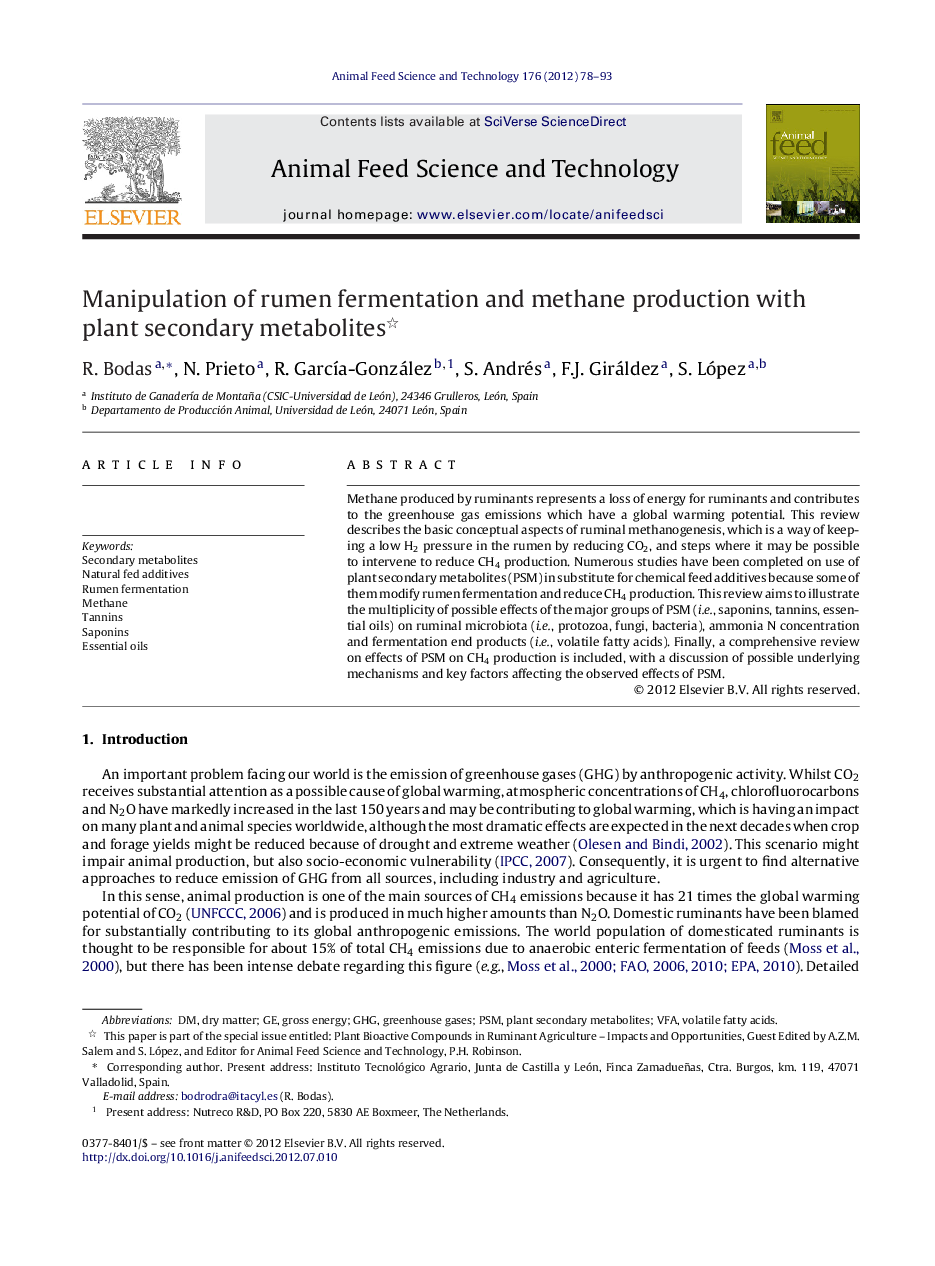| Article ID | Journal | Published Year | Pages | File Type |
|---|---|---|---|---|
| 8492056 | Animal Feed Science and Technology | 2012 | 16 Pages |
Abstract
Methane produced by ruminants represents a loss of energy for ruminants and contributes to the greenhouse gas emissions which have a global warming potential. This review describes the basic conceptual aspects of ruminal methanogenesis, which is a way of keeping a low H2 pressure in the rumen by reducing CO2, and steps where it may be possible to intervene to reduce CH4 production. Numerous studies have been completed on use of plant secondary metabolites (PSM) in substitute for chemical feed additives because some of them modify rumen fermentation and reduce CH4 production. This review aims to illustrate the multiplicity of possible effects of the major groups of PSM (i.e., saponins, tannins, essential oils) on ruminal microbiota (i.e., protozoa, fungi, bacteria), ammonia N concentration and fermentation end products (i.e., volatile fatty acids). Finally, a comprehensive review on effects of PSM on CH4 production is included, with a discussion of possible underlying mechanisms and key factors affecting the observed effects of PSM.
Keywords
Related Topics
Life Sciences
Agricultural and Biological Sciences
Animal Science and Zoology
Authors
R. Bodas, N. Prieto, R. GarcÃa-González, S. Andrés, F.J. Giráldez, S. López,
